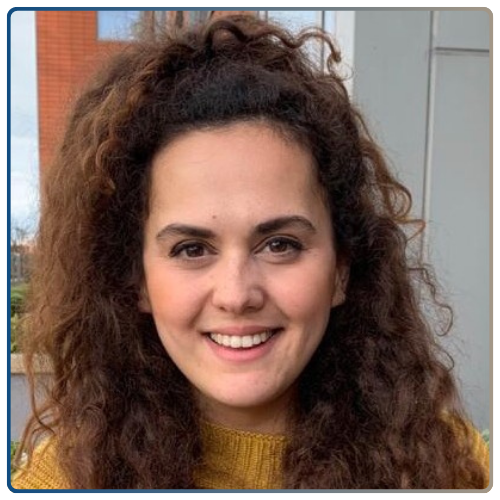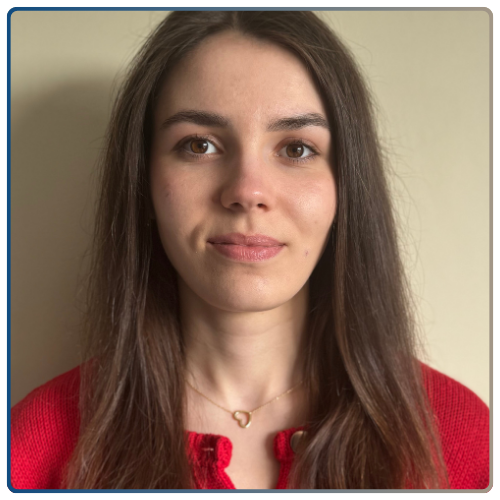About Dr. Tim Yeomans

Dr. Tim Yeomans received his Degree in Industrial Biology from the Institute of Technology Carlow and subsequently completed his PhD in Microbiology at University College Cork. Tim has completed postgraduate diplomas in Technology Commercialisation and Innovation Management. Tim has previously held the position of Postdoctoral Fellow in the National Centre for Medical Genetics, Crumlin and the Dublin Dental School and Hospital. He has held various industrial based roles and more recently provided technical and commercial input as Laboratory and Research Manager for a contract research and development company. Tim has been Centre Manager for the Centre for Applied Bioscience Research since 2011, within this role he is responsible for on-going engagement with industry, scientific direction of the Centre as well as commercialisation of research.
Tim’s research interests and experience align with UN SDGs 3, 9 and 14 (Good Health and Well-Being; Industry, Innovation and Infrastructure; and Life Below Water).
About Dr. Niall Burke

Dr. Niall Burke holds the role of Senior Business Development Scientist and Principal Investigator with the Centre for Applied Bioscience Research at MTU. Dr. Burke received both his BSc in Physiology and his MRes in Microbiology (yeast physiology) from University College Cork. He completed his PhD in Cardiovascular Sciences at The Hatter Cardiovascular Institute of University College London, while researching the role of mitochondrial dynamics in cardiac ischaemia-reperfusion injury. Niall then worked as a postdoctoral fellow for Astrazeneca in Cambridge UK, where he was investigating the role of cell signalling kinases in drug-induced structural cardiotoxicity. Niall uses his cell culture and molecular cell biology experience to contribute to the planning and troubleshooting of the Centre for Applied Bioscience Research’s mammalian and microbial cell culture research projects for both the biotechnology industry and academia. He is currently PI on numerous industrial client projects and lead supervisor for two postgraduate academic projects.
Niall’s research interests and experience are aligned with UN SDGs 3 and 12 (Good Health and Well-Being; and Responsible Consumption and Production).
About Dr Hande Ermiş
Dr. Hande Ermiş is currently working as a Senior Business Development Scientist at the Centre for Applied Bioscience Research (CABR). Dr. Ermiş is a bioengineer and environmental engineer with strong expertise in microalgae biotechnology, wastewater treatment, and bio-based sustainability solutions. She holds a PhD in Environmental Engineering and has led both academic and industry-focused research projects in microalgae cultivation, bioprocess development, and environmental remediation.
Prior to joining CABR, she held a Government of Ireland Postdoctoral Fellowship funded by the Irish Research Council, focusing on the genetic engineering of cyanobacteria for microplastic degradation. At CABR, Dr. Ermiş contributes to the development of collaborative research initiatives, supporting innovation in bio-based technologies, sustainable wastewater treatment, and circular bioeconomy applications.
Hande’s research interests and experience align with UN Sustainable Development Goals 6, 12, and 14 (Clean Water and Sanitation; Responsible Consumption and Production; Life Below Water).
About Dr. Sushanta Kumar Saha

Dr. Sushanta Saha is currently working as a Senior Business Development Scientist at the Centre for Applied Bioscience Research. Dr. Sushanta Saha has twenty years of research experience in cyanobacteria and microalgal biotechnology and has been working as a Microalgal Biotechnologist at the Centre for Applied Bioscience Research for over 13 years. He holds a PhD degree in Microbiology from Bharathidasan University, while he was working on a collaborative project with the University of Hong Kong, Hong Kong to establish a unique marine epilithic cyanobacterial biobank. His academic degrees include BSc Botany (Hons) and MSc Botany from Gauhati University, India. Dr. Saha has held a range of postdoctoral research positions in National Facility for Marine Cyanobacteria, India; Department of Biology, Texas A&M University and Division of Biological Sciences, University of California, San Diego, USA.
Sushanta and his team have established a unique biobank of Irish marine cyanobacteria, marine diatoms and microalgae, which is an on-going research project. These biobank organisms have been explored for the production of carotenoids (astaxanthin, lutein, β-carotene, fucoxanthin), bioactive lipids and omega fatty acids, bioenergy (biodiesel, bioethanol) and other value-added molecules for anti-microbial, anti-inflammatory, anti-cancer and anti-protozoan activities. He is actively working with Irish companies on collaborative projects for R&D development using cutting-edge industrially relevant microalgae cultivation for natural colourant, cosmetic ingredients and also nutritionally-rich microalgal biomass production and their biochemical characterisation. His research uses conventional photobioreactor plus custom-designed photobioreactor with LED lighting technology to enhance biomolecules production. He is also establishing a “Food-grade Microalgae Cultivation Suite” as indoor sustainable cultivation platform for the production of microalgal biomass suitable for food, cosmetics, aquaculture and feed applications.
In parallel, he is researching on cyanobacterial molecular biotechnology for enhanced metabolites production. This research applies overexpression of targeted gene(s) from native or strong promoters on shuttle plasmids or integrated to the genomes by homologous recombination; heterologous gene expression; knock-out of specific genes; reporter fusions for transcriptional and translational analysis by Fluorescence Microscope for basic understating of gene expressions of a specific metabolic pathway. Sushanta also supervises postgraduate students for Research Master and PhD degrees on microalgal biotechnology. He has published several peer-reviewed research and review articles including book chapters. He serves as an invited reviewer for about 50 research journals, editorial board members for two online journals and guest editor for a special issue on microalgae in Sustainability (MDPI journal). The outcome of his research activities has applications as natural colourants (http://sushantasaha.wixsite.com/microalgae/biocosmetics-biocolorant-bioenergy-and-a-c10d6), bio-sunscreens, natural antioxidants, pharmaceutical ingredients and biofuels.
Sushtanta’s research interests and experience align with UN SDGs 3, 11 and 14 (Good Health and Well-Being; Sustainable Cities and Communities; and Life Below Water).
About Damian Gornik
Damian Gornik is a Communications Officer with the Centre for Applied Bioscience Research (CABR) and is streamlining CABR’s digital marketing and communications operations.
Damian obtained a Bachelor of Honours in Software Development from MTU Cork and a Master of Science in Data Science and Analytics, also from MTU Cork. On top of that, Damian has completed four business acceleration programmes.
Prior to joining CABR, Damian Gornik worked in various marketing and communications roles within MTU Cork.
Damian’s research interests and experience align with UN SDGs 4 and 8 (Quality Education and Decent Work and Economic Growth, respectively).
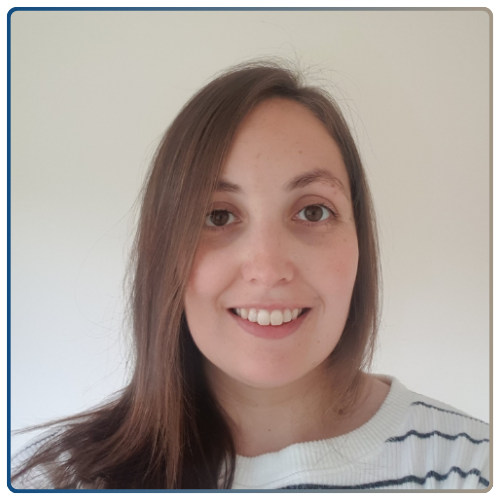
About Dr. Siobhan O'Sullivan
Dr. Siobhan O’Sullivan is a Research Scientist at the Centre for Applied Bioscience Research (CABR) based in MTU Cork. With a PhD in Nutritional Biochemistry from UCC, Dr. O’Sullivan brings extensive expertise to her role, complemented by an MSc in Biomedical Science from NUIG and a BSc in Physiology from UCC.
At University College Cork, Dr. O’Sullivan obtained her PhD entitled “Bioactivity of protein hydrolysates derived from casein, bovine blood and lung tissues in cultured cells”. Siobhan then worked as a postdoctoral researcher in UCC on a variety of projects in the areas of human nutrition and food science. Siobhan also has experience in the pharmaceutical industry working on the verification and validation of analytical methods in pharmaceutical drug development.
Centre Researchers

About Dr. Aleksandra Augustyniak

Dr. Aleksandra Augustyniak received her Master Degree in Biology from the Department of General Genetics and Plant Molecular Biology and Biotechnology, University of Łódź, Poland. Subsequently, she completed her PhD in Biological Sciences from the Laboratory of Cytogenetics at the University of Łódź, whereby her research focused on the evaluation of the cytotoxicity and genotoxicity of Angeli’s salt-derived nitroxyl. Aleksandra joined the Centre for Applied Bioscience Research in 2015 and since then she has worked on a number of projects with a variety of industrial clients, including nutraceuticals, medical devices and cosmetics. Currently, she holds the position of Postdoctoral Scientist. Her main research interests focus on various aspects of cell culture technology and carcinogenesis. Aleksandra specializes in mammalian cell culture and in vitro screening for novel compound bioactivity using various cellular models.
Aleksandra’s research interests and experience align with UN SDGs 3 and 12 (Good Health and Well-Being; and Responsible Consumption and Production).
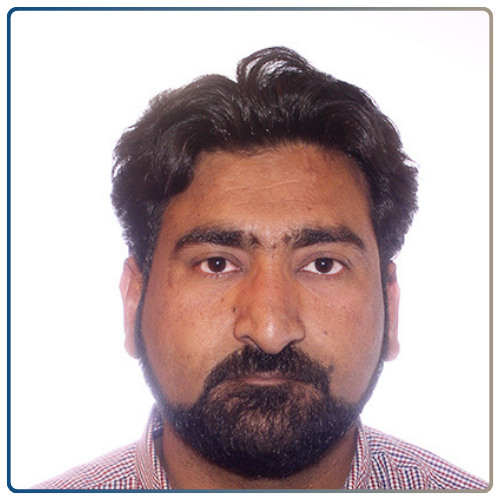
About Dr Aon Waqas Awan
Dr Aon Waqas Awan is working within the Circular Bioeconomy Research Group (CircBio) at CABR as a Research Scientist.
Dr Aon Waqas Awan earned a Ph.D. in Applied Economics with a specialisation in Environment from the University of the Balearic Islands, Spain, and has extensive experience in academia and applied research projects across Europe.
With expertise spanning climate change, energy systems, tourism economics, and infectious disease importation, Dr Aon Waqas Awan combines rigorous economic analysis with practical solutions to global challenges.
Dr Aon Waqas Awan has worked with leading institutions, including:
- Technological University Dublin (TU Dublin, Ireland)
- University College Cork (UCC, Ireland)
- University of the Balearic Islands (UIB, Spain)
- Shaheed Benazir Bhutto University (SBBU, Pakistan)
- Institute of Management Sciences (IMSciences, Pakistan)
Dr Aon Waqas Awan has contributed to high-impact projects such as:
- SELKIE – marine renewable energy commercialisation
- Leaf No Waste – food waste reduction through shelf-life extension technologies
- Tourism Demand and Meteorological Issues (FU061)
- Weather and Tourism Demand Modelling (ECO2013-44823-R project)
Dr Aon Waqas Awan’s research is distinguished by its applied orientation, focusing on delivering evidence-based insights for sustainable development, energy transition, and policy innovation.
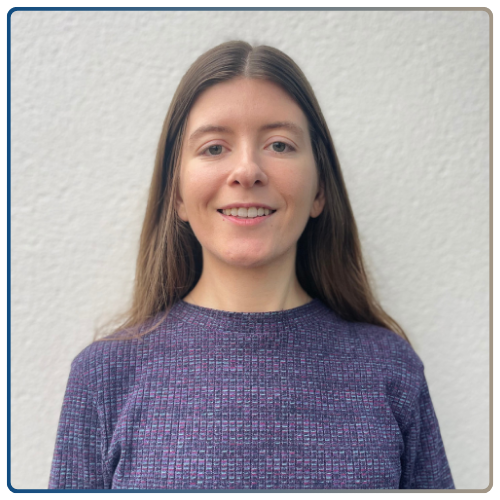
About Dr. Clodagh Carr
Dr Clodagh Carr is a researcher and network manager for NPOWER Project at CABR, a Horizon Europe project which aims to reduce nitrogen and phosphorous emissions from agriculture, aquaculture, wastewater management, energy and transport, and industrial sectors. The NPOWER consortium consists of 25 partners from 6 EU countries (Spain, Ireland, Finland, Belgium, Switzerland, and France) working to develop a set of technical and management solutions that help to re-balance N/P nutrient cycles, limiting the pollution of air, water, and soil ecosystems. The project seeks to engage practitioners, policy makers, and academic and research representatives to strengthen stakeholder networks and gather key insights from each emitting sector.
Clodagh graduated with a BSc in Biotechnology (2019) and a PhD in Microbiology (2024) from University College Cork (UCC) in Ireland. Clodagh’s research interests include environmental biotechnology, marine microbiology, and the development of sustainable bio-based practices. During her PhD, she investigated marine bacteria as a source of plastic-degrading enzymes for bio-catalysis and bio-recycling applications. Prior to joining the Circular Bioeconomy Research Group at CABR, she has worked on projects relating the disposal of bio-based medical waste and the capture of pollutants from wastewater streams.
Prior to joining the Circular Bioeconomy Research Group, Clodagh was a research assistant on an Enterprise Ireland Innovation project relating to the disposal of bio-based medical waste and worked as a post-doctoral researcher at Brunel University London under the Environmental Biotechnology Innovation Centre, with a focus on the capture and treatment of pollutants from water and wastewater streams.

About Dr. Catherine Collins

Dr. Catherine Collins is a Research Scientist at Shannon Applied Biotechnology Centre in TUS. She is currently the lead scientist on Circular Bovine and Ovine Co-Products Valorisation (CirCoVal). This is a strategic project funded by the Department of Agriculture Food and the Marine that will deliver the best sustainability practices to Irish primary producers. The project will focus on the valorisation of red meat co-products with the least value to the industry – currently a source of losses to their producers – and the purification of wastewater produced at the abattoirs. A number of circular processes will be developed, scaled up, and economically assessed to provide a suite of potential options for the individual producers in the agri-food sector to choose from. Catherine has a degree in Biochemistry and a PhD in Fungal Biotechnology. She had worked on a number of projects at Shannon Applied Biotechnology Centre both as a researcher and Principal Investigator. Most recently she explored the role of fungi in the bioremediation of plastics as part of the Horizon 2020 BioICEP project https://www.bioicep.eu/.
Catherine’s research interests and experience align with UN SDGs 3 and 12 (Good Health and Well Being; and Responsible Consumption and Production).

About Carmen Dominguez

Carmen Giron-Dominguez is a Researcher and Project Manager in Sustainable Biomass Supply Chain and Logistics for the INFORMBIO project, funded by the Department of Agriculture, Food and the Marine of Ireland. She holds a Biology degree, with specialisation in Ecology and Botany, and a MSc in Environmental Biotechnology, with specialisation in Circular Economy for agriculture, biostimulants and biofertilizers. Carmen has almost 4 years of experience in bioeconomy European R&D projects (H2020, BBI-JU and ATLANTICO) and have worked with bio-based businesses and entrepreneurs as an Innovation Consultant in Spain. She is also a member of the Bioeconomy Education for Systemic Change (BE CHANGE) community of practice.
Carmen’s research interests and experience align with UN SDGs 11, 12 and 13 (Sustainable Cities and Communities; Responsible Consumption and Production; and Climate Action).

About Dr. Gustavo Waltzer Fehrenbach
Dr. Gustavo Waltzer Fehrenbach holds a Bachelor’s degree in Biochemical Engineering from the University of Rio Grande and a second Bachelor’s in Environmental Management from the Federal Institute Sul-rio-grandense. He further pursued advanced studies, earning a Master’s in Biotechnology from the Federal University of Pelotas and a Master’s in Engineering and Environmental Management from the Federal Institute Sul-rio-grandense. Supported by the prestigious Irish Research Council (IRC) funding, Dr. Fehrenbach completed his PhD in Microbiology, where he developed innovative and sustainable water treatment technologies for the seafood industry.
Currently a Postdoc Researcher at the Technological University of the Shannon (TUS) in the Bioengineering Organ-on-Chip Research Group and Polymer, Recycling, Sustainability, Industrial and Manufacturing Research Institute – PRISM, Dr. Fehrenbach specializes in bioactive compounds, environmental technologies, and applied sciences. His work includes collaborating with the Centre for Applied Bioscience Research, advancing sustainable product testing, and driving industry-focused innovation. He also played a key role in international education initiatives, demonstrating a commitment to knowledge exchange and interdisciplinary research.
Dr. Fehrenbach research interests and experience align with UN SDG 3, 12, and 14 (Good Health and Wellbeing, Responsible Consumption and Production, and Life Below Water).

About James Gaffey

James Gaffey is Co-Director of the Circular Bioeconomy Research Group (CIRCBIO) at the Centre for Applied Bioscience Research in MTU. James is Principal Investigator on the BBI JU ICT-BIOCHAIN and BIOSWITCH projects and currently coordinator of the EIP-Agri Biorefinery Glas, small-scale grass biorefinery demonstration project. He is academic collaborator in the SFI BiORBIC Research Centre and part of the SFI Farm Zero C team.
Additional new projects include H2020s COOPID and AgroBridges. James is part of the core programme development team and lecturer on the Postgraduate Diploma in Bioeconomy with Business co-developed by MTU, UCD and Teagasc. He has been a regular contributor to European-level studies into circular bioeconomy and is currently a member of the Expert Panel for the Impact Assessment of the European Partnership for a Circular Biobased Europe under the future Horizon Europe programme. James joined MTU in 2016, working as biorefinery specialist on the EU Horizon 2020 AgriForValor Project. Prior to this, James worked in the biorefinery industry since 2009 with Sustainable Biopolymers, Cellulac Ltd and the Technology Centre for Biorefining and Bioenergy (NUI Galway) and through projects including Bio-Eire, Future European League for Microalgal Energy (FUEL4ME) and Sustainable Polymers from Algae Sugars and Hydrocarbons (SPLASH).
James’ research interests and experience align with UN SDGs 11, 12 and 13 (Sustainable Cities and Communities; Responsible Consumption and Production; and Climate Action).

About Dhanyamol George

Dhanyamol George received her MSc in Immunotherapeutics from Trinity College Dublin in 2020. She also holds a postgraduate degree in Biotechnology from Bangalore University, India. She received a BiSEP scholarship in 2015 from the Department of Biotechnology, Ministry of Science and Technology, Government of India, for an advanced postgraduate diploma in Fermentation and Bioprocessing from Mangalore University.
Dhanyamol has both theoretical knowledge and hands-on experience in the quality control and microbiological aspects of pharmaceutical industry. Her research-based projects have involved recombinant expression and purification of therapeutic proteins, and determining the immunogenicity of therapeutic protein aggregates. She is familiar with the upstream and downstream processing steps involved in the development of many biopharmaceuticals, and has training experience in the technical challenges involved in fermentation and bioprocessing. Dhanyamol is currently working as a Research Scientist at the Centre for Applied Bioscience Research for various industrial projects.
Dhanyamol’s research interests and experience align with UN SDG 3 (Good Health and Well-Being).

About Niamh Hennessy
Niamh Hennessy is working as a Research Assistant at the Centre for Applied Bioscience Research (CABR), contributing to cosmetic product validation and efficacy on in vitro skin cell models.
Niamh Hennessy received a BSc (Hons) in Pharmaceutical Science with Biopharmaceuticals from Munster Technological University (MTU) in 2020, as well as the Astellas Award of Achievement for Outstanding Academic Performance in BSc Pharmaceutical Science. The key areas of focus in this degree were chemistry and biology, such as Applied Pharmaceutical Chemistry, Biochemistry, Pharmaceutical Microbiology, Molecular Biology and Cell Culture. Niamh’s fourth-year research project was carried out at CABR and investigated the effect of Naturally Derived Lipids on Vascular Function in Endothelial and Epithelial Cell Models.
Prior to this position, Niamh gained industry experience working as a Quality Control Microbiology Analyst at Regeneron Pharmaceuticals. In this role, Niamh performed environmental monitoring of aseptic operations and controlled areas, analysed samples for microbial identification, conducted laboratory investigations and generated reports in response to invalid assays, deviations and OOS/OOT.

About Wriju Kargupta
Dr Wriju Kargupta completed his Bachelor of Technology in Biotechnology from NIT Durgapur and his M.Tech in Environmental Science & Engg from IIT Bombay (2010-2012). Wriju then worked at The Energy and Resource Institute (TERI, New Delhi, India) (2012-2013), before joining Reliance Technology Group, RTG (2013-2017), where he worked on A2O (Algae to Oil project), mainly with the Downstream Process Engineering group (Mumbai) and Analytical Biological Lab at Jamnagar, Gujarat, India.
In 2018, he began his PhD at Monash University, Clayton. Wriju’s research on energy efficient production of cellulose nanofiber is part of the Processing Lignocellulosics into High Value Products (PALS), under the supervision of Assoc. Prof. Warren Batchelor and Dr Joanne Tanner. After completing his PhD in 2021, Wriju was briefly working at Bioextrax AB, Sweden (in early 2022, a spin off Lund University) on Downstream methods for PHA extraction and purification. Before joining CircBio, Wriju was employed as a postdoctoral scientist at CBNU , South Korea this time working on PHA production using fermentation.

About Tielidy Lima
Tielidy is currently conducting postdoctoral research at the Technological University of Shannon, focusing on wool biorefinery processing (SPRINGWOOL project), as part of the Bioengineering Organ-on-a-Chip Research Group at CABR. She will evaluate the potential for reusing sheep wool, focusing on the growing demand for sustainable solutions to manage new by-products.
Tielidy was awarded a Bachelor in Chemistry from the Federal University of Paraná (Brazil), and a Master in Materials Engineering from the same university (Brazil). Tielidy returned to college as a mature student in 2020 to undertake a PhD in Polymer Engineering in TUS after 11 years of working in the industry. Her background is in forestry research, using different residues in sustainable practices. Her research interests are in hydrogels, nano technology, controlled drug delivery, polymer materials, nanocellulose, biodegradable polymers and natural polymers and materials characterization. The SPRINGWOOL project is funded by the Department of Agriculture, Food and the Marine with partners in MTU, TUS, ATU and UCD; its purpose is to remove obstacles and provide a springboard for innovation in the Irish-grown wool sector
The wool-based biorefinery aligns with SDG 9 (Industry, Innovation, and Infrastructure) by promoting sustainable technologies in industry, and SDG 12 (Responsible Consumption and Production) by encouraging a circular economy, reducing waste, and minimizing environmental impacts, contributing to sustainability and innovation in production.

About Dr. Tracey O'Connor

Dr. Tracey O’Connor is a post-doctoral researcher in the Circular Bioeconomy Research Group at the Centre for Applied Bioscience Research, MTU. Tracey is working on the “Surplus Food Redistribution from the Horticulture Sector” project, funded by the Department of Agriculture, Food and the Marine, Ireland, and “Socio-Economic Study of Seaweed Harvesting in Ireland” project funded by the Marine Institute, Ireland and the European Maritime Fisheries Fund. Her primary expertise is in sustainable food production, including farming and fishing practices, livelihoods, environments, and governance. Tracey holds a BAgrSc. (Hons) in Agri-Environmental Science from University College Dublin (UCD), and MSc. in Environmental Sciences, specialising in Environmental Policy, from Wageningen University. Tracey received her PhD in Rural Development from the School of Agriculture and Food Science at UCD, which was completed during a Walsh Fellowship at UCD and the Teagasc Rural Economy and Development Programme, funded by Teagasc and the Health and Safety Authority of Ireland.
Tracey’s research interests and experience align with UN SDGs 11, 12 and 13 (Sustainable Cities and Communities; Responsible Consumption and Production; and Climate Action).

About Dr Farrukh Raza
Dr Farrukh Raza Amin holds a PhD in Chemical Engineering and Technology from Beijing University of Chemical Technology, specialising in microbial pretreatment of biomass to improve biomethane production. He also earned a Master’s degree in Environmental Sciences from the International Islamic University Islamabad and a Bachelor’s (Hons) in Chemistry from Government College University Faisalabad, Pakistan. His academic path reflects a commitment to pioneering sustainable solutions across environmental technologies and bioengineering.
Dr Amin currently serves as a Research Scientist with the Circular Agriculture and Biotechnology Group (CircAB) at the Centre for Applied Bioscience Research (CABR), Technological University of the Shannon (TUS), Ireland. At CABR, he leads innovative research on circular bioprocesses for valorising industrial by-products, focusing on the development of scalable, zero-waste, and low-emission solutions. His role extensively involves cross-sectoral collaborations, driving the extraction, enzymatic digestion, purification, and analytical assessment of organic compounds, and optimising biogas production.
An accomplished scholar, Dr Amin has published in high-impact journals on topics such as anaerobic digestion, biochar, syngas conversion, and sustainable biomanufacturing. Previously, Dr Amin held academic appointments as Assistant Professor at COMSATS University Islamabad (CUI), Pakistan, and postdoctoral and leadership roles (PI) at the Tianjin Key Laboratory for Industrial Biological Systems and Bioprocessing Engineering, Chinese Academy of Sciences, China, under the prestigious Belt and Road Fellowship Initiative. He has actively contributed to major international research projects in China, Germany, and Thailand, focusing on environmental management, sustainable energy, biofuels, and bioprocessing engineering.
His research closely addresses the United Nations Sustainable Development Goals (UN SDGs) 4 (Quality Education), 7 (Affordable and Clean Energy), 8 (Decent Work and Economic Growth), 9 (Industry, Innovation and Infrastructure), 11 (Sustainable Cities and Communities), 12 (Responsible Consumption and Production), 13 (Climate Action), and 15 (Life on Land), aiming to develop environmentally responsible and health-promoting technologies. Dr Amin’s professional journey demonstrates a strong commitment to interdisciplinary innovation, international collaboration, and circular economy principles in environmental and biochemical engineering.

About Fathima Razily
Fathima Ellathuparambil Razily is a Research Assistant at Centre for Applied Bioscience Research (CABR), contributing to an industry-collaborative project to assess the functionality of compounds using in vitro skin cell culture models, in collaboration with the UCD Charles Institute of Dermatology and a leading cosmetic industry.
She holds a Master of Science in Biopharmaceutical Technology from Technological University of the Shannon, Athlone and holds a Bachelor of Pharmacy from the Government Medical College, Kottayam, India. Fathima is also a registered pharmacist with the Pharmacy Council of India and has completed bioprocessing training at NIBRT, specializing in upstream and downstream processing, encompassing bioreactor operation, cell culture and electrophoresis techniques.
Fathima’s experience spans mammalian cell culture and in vitro screening for bioactivity, with a strong background in bioprocessing, microbiology, and bioassays. Her previous research focused on the impact of various monofloral honeys on probiotic supplements, employing advanced microbiological and analytical techniques.
Beyond research, Fathima actively contributes to the academic community as an Alumni Ambassador with the TUS, supporting student engagement and professional networking.
Her research interests and experience align with UN SDGs 2, 3, and 9 (Zero Hunger, Good Health & Well-Being, and Industry, Innovation & Infrastructure).

About Dr. Theresa Rubhara

Theresa is an agricultural economics researcher with experience in: farm level economics, food security, sustainability of food value chains and climate change. Currently, Theresa is a researcher at the Circular Bioeconomy Research Group, the Centre for Applied Bioscience Research, MTU. Theresa is part of a team working on the SFI Farm Zero Carbon project which aims to develop a model farm with a neutral greenhouse gas emission based on the Irish pasture-based livestock systems. Collaborating with researchers from TCD and UCD, Theresa forms part of a team developing the social innovation blueprint with a business model for farmers to mitigate climate change. The blueprint will contain important resources and economic analysis of specific mitigation strategies including the green biorefinery which farmers can use to ensure carbon neutrality on the farm. Prior to joining MTU, Theresa worked as a post-doctoral researcher on the CAPRI Green project at Teagasc, a project involving validation of the CAPRI economic model with farm survey data for estimating economic, environmental and social sustainability on Irish farms. Theresa also worked on projects involving sustainability of the pork value chain and climate change for small scale farmers in South Africa. Theresa received a Phd in Food Security from University of KwaZulu Natal, South Africa in 2018 and her research was focused on the economics of small-scale farm level crop production choices. She also has a master’s in rural development from Van Hall Larenstein University, Netherlands and a Bachelors in Agricultural economics from Bindura University, Zimbabwe.
Theresa’s research interests and experience align with UN SDGs 11, 13 and 15 (Sustainable Cities and Communities; Climate Action; and Life on Land).
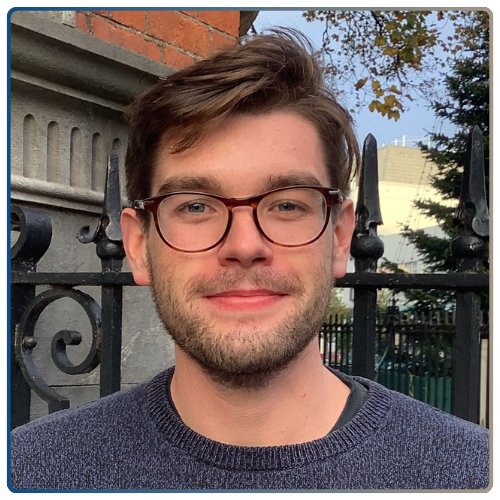
About Eamonn Maher
Eamonn Maher is a Research Assistant at Centre for Applied Bioscience Research (CABR), where he contributes to the centre’s industry collaborative projects.
He holds both a Master of Science in Molecular and Cell Biology with Bio-innovation and a Bachelor of Science in Chemistry from University College Cork (UCC).
Eamonn’s research background integrates computational and experimental methodologies. His undergraduate final year project involved utilising high-performance computing capabilities at Tyndall National Institute to conduct computational chemistry studies, specifically calculating interaction energies between CYP450 enzymes and Augmentin/its metabolites. For his Master’s thesis, he focused on biocatalysis, investigating the use of PET hydrolysing enzymes for the degradation of PET plastic and the subsequent purification of the resulting monomers.
His experience encompasses areas such as computational modelling, enzyme analysis, biocatalysis, and purification techniques.
About Dr Emma Murphy

Dr Emma Murphy holds a Degree in Bioanalytical Science, Degree in Toxicology and a Ph.D. in Microbiology. During her PhD, Emma investigated the therapeutic effect of fungal polysaccharides in bacterial-induced lung injury. This work was carried out in Athlone Institute of Technology and National University of Ireland, Galway. Emma has completed a postdoctoral research project in the area of bioactive (microalgae) and immunology.
At present, Emma is employed as a Research Fellow / Group Leadin in the Centre for Applied Bioscience Research. Emma previously worked as a postdoctoral scientist on the BIM-funded M-Factories project which was based on the development of an innovative microalgal commercialization pipeline. Emma is an Associate Researcher with the Materials Research Institute in the Technological University of the Shannon, Athlone and her research interests are microalgae, bioactive polysaccharides, and immunomodulation in hyperinflammatory microenvironments in lung injury.
Emma’s research interests and experience align with UN SDG 3 – Good Health and Well-Being.
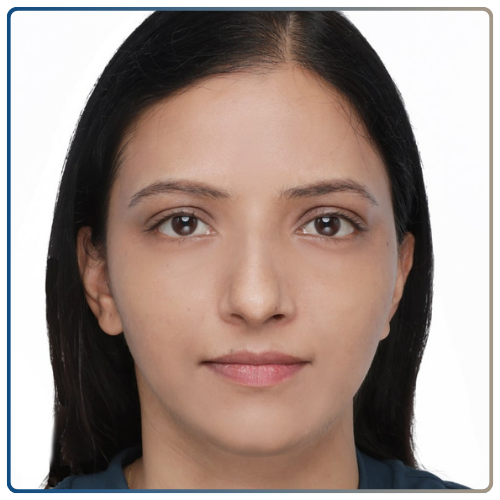
About Dr Anuma Singh
Dr Anuma Singh is currently working as a Postdoctoral Scientist in marine cosmetic skin science at the Centre for Applied Bioscience Research (CABR), Munster Technological University (MTU). She earned a Master’s degree in Applied Microbiology from Banaras Hindu University (BHU, India; 2010–2012) and a PhD in Natural Product Chemistry from the Indian Institute of Technology Guwahati (IITG, India; 2012–2019).
Her doctoral research focused on developing improved and efficient methods for isolating and characterising flavonoid bioactives from Pongamia pinnata seeds, studying their photophysical and photochemical properties in various microenvironments, and evaluating their antibacterial effects against gut pathogens using Raman scattering and multiparametric flow cytometry.
Following her PhD, she worked as a Scientist Fellow in the Natural Product Chemistry division at the Institute of Bioresources and Sustainable Development (IBSD, India; 2019–2020), and as a Postdoctoral Fellow at Vellore Institute of Technology (VIT, India; 2021–2022), where she developed spontaneous, efficient, and non-toxic probes to study the fluorescence properties of commercially significant plant pigments and dyes. She later worked as an Associate Scientist at Dazzeon Biotech Co. Ltd., Taiwan (2022–2024), where she worked on in-house developed polysaccharide-based nutraceutical products targeting gut mucosal inflammation related to ulcerative colitis, ulcers, and inflammatory bowel disease (IBD), cellular oxidative stress in retinal cells linked to age-related macular degeneration (AMD), and skin inflammation.
With research experience in both academic and industrial R&D settings, her expertise ranges from spectroscopy, chromatography, and photophysics to cell biology, molecular biology, and bioimaging techniques. She has also collaborated with various CROs and academic institutions, served as an invited reviewer for several international journals, and has a proven publication record in peer-reviewed journals.

About Dr. Ashley Sullivan

Dr Ashley Sullivan joined the Centre for Applied Bioscience Research in 2021 where she holds the position of Cell Culture Research Scientist, based at the Centre for Applied Bioscience Research, MTU. Ashley received her BSc. (Hons) Microbiology degree from University College Cork. This degree focused on the theoretical and practical knowledge of industrial, medical, molecular and food microbiology. She completed her PhD in Medicine and Health at APC Microbiome Ireland and University College Cork where her research focused on translational medicine with respect to the microbiome in asthmatic patients. Here she gained experience in patient cohort studies and her research focused on the characterisation of the lung microbiota in adult asthmatic patients, the evaluation of lung microbiota changes pre and post immunotherapy and the investigation of host microbe interactions in BEAS-2B bronchial epithelial cells. This research lead to a number of publications in Allergy, Respiratory Research and Chest and the presentation of findings at international conferences including the European Respiratory Society Congress. She was awarded a European Respiratory Society (ERS) Short Term Research Training Fellowship in 2018 where she received training in primary cell culture techniques including submerged and 3D Air Liquid Interface (ALI) culture methods at the Institute of Cellular Medicine, Newcastle University, UK. She has an interest in the interplay present between science and business and has obtained a Postgraduate Certificate in Innovation, Commercialisation and Entrepreneurship from University College Cork.
Ashley’s research interests and experience align with UN SDG 3 (Good Health and Well-Being).
About Dr Joanna Przyborska
Dr. Joanna Przyborska completed her M.Sc. in Molecular Biology at the Faculty of Biology, Adam Mickiewicz University in Poznań, Poland. She obtained her PhD in Biological and Pharmaceutical Sciences from Munster Technological University, where her work focused on the biological properties of horse chestnut by-product. Supported by the prestigious Irish Research Council Postgraduate Scholarship, her study explored the potential applications of this by-product in human nutrition.
After completing her PhD, Joanna worked as a researcher at the Centre for Applied Bioscience Research (CABR) for a number of years, gaining extensive expertise in biomass characterization. Throughout her scientific career, she has been involved in the extraction, purification, and structural elucidation of organic compounds from various biomass sources using advanced analytical platforms. She also evaluated the biological properties of these compounds, particularly their antimicrobial, antioxidant and prebiotic potential. Alongside her research activities, Joanna has experience in science communication, having previously taught chemistry, biology, and science at the secondary level.
She is currently a postdoctoral researcher within the Circular Bioeconomy Research Group on the “Rural BioReFarmeries” project, focused on the sustainable development and exploitation of green biorefinery feedstocks and products.
Joanna’s professional interests and expertise align with the United Nations Sustainable Development Goals (SDGs) 11, 12, and 13—Sustainable Cities and Communities, Responsible Consumption and Production, and Climate Action.
About Khrystyna Tabalyuk
Khrystyna Tabalyuk is a dedicated and research-driven scientist currently working as a Research Assistant in Marine Cosmetic Analytical Science at the Centre for Applied Bioscience Research (CABR), Munster Technological University (MTU).
She holds a B.Sc. (Hons) in Pharmaceutical Science with Biopharmaceuticals from MTU and will begin a Master’s in Computational Biology at MTU Cork in September 2025. Her academic foundation is complemented by extensive laboratory experience in analytical chemistry, formulation science, microbiology, and in-vitro skin cell culture models.
Her previous research includes the encapsulation of small molecules (Vitamin B12) using yeast cell wall derivatives from Saccharomyces cerevisiae to improve delivery and stability—demonstrating her interest in bioactive delivery systems. She also gained valuable industry experience at Astellas Pharma, where she worked in quality control chemistry, method development, and documentation in line with GLP and GMP standards, and participated in Green Lab initiatives promoting sustainability in pharmaceutical operations.
She is involved in a multi-disciplinary, industry-academic project, where she contributes to the development of scalable green extraction methods for seaweed-derived bioactive and their application in improving skin efficacy and generating novel skincare benefits, including skin lightening, microbiome support, and menopause-related skin care.
Khrystyna’s research interests and experience align with UN SDGs 3, 9 and 12 (Good Health and Well-Being; Industry, Innovation and Infrastructure; and Responsible Consumption and Production).

About Dr. Yin Zhu

Dr. Yin Zhu has received his Bachelor’s and Master’s degrees in Environmental Engineering from Nanjing Agricultural University, China. He participated in several industrial wastewater and sewage sludge treatment projects during this period. Afterwards, he obtained a scholarship from China Scholarship Council to study at the Laboratoire de Génie Chimique of Université Toulouse III – Paul Sabatier, France, for his doctorate. He obtained PhD in science for engineering in 2020. His research focuses on the valorization of biomass from domestic waste fermentation broth by membrane filtration processes, including the effect of feed components on membrane separation and the mechanism of membrane surface charge on the retention of weak electrolytes. Following PhD graduation, Dr. Zhu worked as a research engineer at Guangdong Academy of Sciences on a project focused on the treatment of gemstone processing wastewater and the resource utilization of solid waste.
As a postdoctoral researcher, Dr. Yin Zhu joined the Centre for Applied Bioscience Research in 2022. His main research project is the extraction, separation, and purification of value-added biomass from by-products of the meat industry through a clean, environmentally friendly process for use as an animal feed additive, dietary supplement, and even pharmaceutical ingredients. Dr. Yin Zhu specializes in separation and purification, pursuing a higher value of molecules by improving their yield and purity using membrane processes.

About Shadrach Wisdom Eveshoyan

Shadrach Wisdom Eveshoyan, graduated from the University of Benin (UNIBEN) in Nigeria in 2017, with a Bachelor’s and Doctor of Pharmacy degree. In his final year undergraduate thesis, Shadrach carried out a project on “Antimicrobial susceptibility pattern of bacterial isolates from ulcers”. The study involved the collection of wound swabs from patients at a secondary health facility in Benin-City Nigeria, culturing of wounds swabs obtained at the laboratory, identification of micro-organism present, and the antimicrobial susceptibility patterns shown by the organism cultured. From the study, Shadrach was able to conclude that Staphylococcus aureus was the most prevalent micro-organism encountered and that the Fluoroquinolones group of antibiotics had the best observed antimicrobial activity.
During his internship year (2018), at Garki general hospital, Abuja Nigeria Shadrach took part in a clinical trial as a data collector on a novel recombinant human epidermal growth factor bio therapeutics called Heberprost-P for chronic ulcer, the findings from this trial shown a marked improvement in wound cicatrisation for patients with diabetes foot ulcer and other kinds of ulcers as well, also in 2019/2020 Shadrach joined the Nigeria Red Cross Society as part of his community development services during his year of national service and engaged in some health sensitization activities. He was awarded the Best Young Pharmacist at his place of primary assignment for the year 2019.
Shadrach is currently conducting his postgraduate studies in the “Characterization of mammalian and insect cell performance in Laboratory and Pilot scale bioreactor for biopharmaceutical applications” at the Centre for Applied Bioscience Research under the supervision of Dr. Niall Burke and Dr. Joanna Tierney. The aim of this research is to examine performance levels of industrial relevant cell line (Mammalian and insectan cell line) across both stirred tank bioreactor and single cell bioreactor. The mammalian cell line uses is the Chinese hamster ovary cell, while the insect cell line use is the Spodoptera frugiperda (Sf9) cells.
Shadrach’s research interests and experience align with UN SDG 3 (Good Health and Well-Being).
Postgraduate Students

About Mariana Juca da Silveira e Silva
Mariana Juca holds a Bachelor’s degree in Biomedical Sciences, with a primary focus on Molecular Biology, particularly the study of circular RNAs. Her academic and research background extends across diverse fields, including Genetics, Bioinformatics, Public Health, and Clinical Hematology, where she has developed a robust set of laboratory and analytical skills.
Currently, Mariana is a PhD researcher in the Bioengineering Research Group (Organ-on-Chip), under the lead supervision of Dr Emma J. Murphy, co-supervision of Prof Emanuele Rezoagli, Prof John Laffey, Dr Gustavo Fehrenbach and Dr Patrick Murray. Her doctoral research is centred on investigating the potential of mesenchymal stem cell-derived antimicrobial peptides (AMPs) to combat antimicrobial resistance for the treatment of sepsis modelled in organ-on-chips.
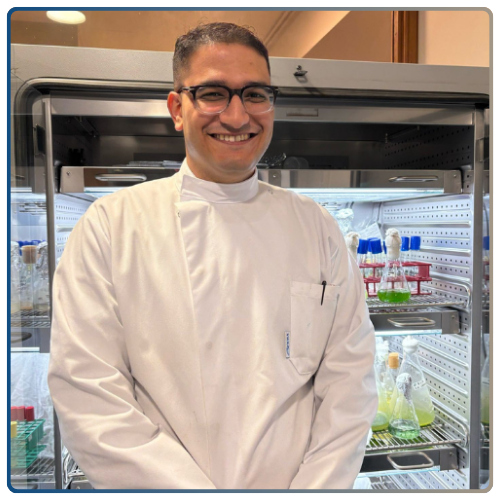
About Ahmed Abdellatif
Ahmed Abdellatif has an Erasmus Master’s degree in Food Science and Technology. His Erasmus program was partnered with four Universities in Europe: KU Leuven in Belgium (Hosting University), Universidade Católica Portuguesa in Portugal, Hochschule Anhalt in Germany, and University College Dublin in Ireland which earned him the skills of multicultural work ethics and quick adaptation.
He is now pursuing a PhD program in the Technological University of the Shannon (TUS) under the supervision of Drs Sushanta Kumar Saha, Marija Mojicevic, and Lena Madden. Ahmed joined Centre for Applied Bioscience Research in October 2024 and has been working on DAFM funded CircoVal project. His research project aims to develop efficient biofuel production from meat industry by-products, and subsequently the bioremediation of waste streams by microalgae and bacteria for respective production of value-added biomass and biopolymers like, bacterial nanocellulose and polyhydroxyalkanoates within circular bioeconomy and environmental sustainability concepts.
His research aligns with the United Nations Sustainable Development Goals (SDGs), especially SDG 6 (Clean Water and Sanitation), SDG 7 (Affordable and Clean Energy), and SDG 14 (Life Below Water). Ahmed is enthusiastic about his PhD in sustainability and circular bioeconomy and is willing to take on new challenges.

About Mehdi Amiri
Mehdi Amiri holds a Master’s Degree in Nanobiotechnology from the Department of Life Sciences at the University of Tehran, Iran. He is currently pursuing a PhD as part of the Bioengineering Research Group (Organ-on-Chip) at TUS, under the supervision of Dr. Evert Fuenmayor and Dr. Emma J. Murphy. His research focuses on harnessing bioresources, including exploring the anti-obesity potential of Irish natural resources and modeling their effects using in-vitro systems and advanced organ-on-chip platforms.
Mehdi has developed a strong skill set in areas such as aseptic tissue culture techniques, scaffold fabrication, stem cell isolation, DNA and RNA extraction, and the use of advanced analytical instruments including LC/MS QTOF, TOC, ICP-OES, and ion chromatography HIC-ESP.
His research aligns closely with the United Nations Sustainable Development Goals (SDGs), particularly SDG 3 (Good Health and Well-being) and SDG 12 (Responsible Consumption and Production). Mehdi is deeply committed to advancing sustainable biotechnological solutions to address critical health and environmental challenges.

About Lord Gyimah
Lord Gyimah earned his bachelor’s degree from Kwame Nkrumah University of Science and Technology in the Faculty of Pharmacy and Pharmaceutical Sciences, Ghana. Following this, he served as a teaching assistant in the Department of Pharmacognosy. He then pursued his master’s studies (MPhil) in the same department, focusing on the ‘Exploration of Natural Products as Potential Sources of New Drug Molecules’. His master’s program was funded by KNUST Research Fund and Ghana National Petroleum Postgraduate Scholarship
Subsequently, he was appointed as an assistant lecturer at the University for Development Studies, School of Pharmacy in Ghana. His technical skills include chromatographic purification, spectroscopic analysis, phytochemical analysis, structural elucidation, and biological assays. Additionally, he is a member of the Society of Medicinal Plant and Natural Product Research and the American Society of Pharmacognosy.
In August 2024, he started his PhD research with CABR through the DAFM scholarship, under the supervision of Patrick Quille, Dr. Bernard Boateng, and Dr. Ellish Broderick. His research focuses on “The Potential of Biostimulants on perennial rye grass and multi species employing a range of analytical methods, including ion chromatography, gas chromatography, inductively coupled plasma mass spectrometry (ICP-MS), Leco analyser, and NIRS.
Lord’s research aligns with the United Nations Sustainable Development Goals (SDGs), specifically SDG 3 (Good Health and Well-being) and SDG 12 (Responsible Consumption and Production). He is passionate about advancing sustainable biotechnological solutions for health and environmental challenges.

About Joanne Hanifin
Joanne Hanifin was awarded her BAgrSc Animal Science Degree from University College Dublin in 2024. During her undergraduate studies, Joanne had the opportunity to study abroad at Iowa State University, where she gained a global perspective of the agricultural industry whilst learning about animal physiology, genetics, and nutrition. Joanne also completed over 20 weeks of professional work experience across various agricultural enterprises in Ireland and Scotland and completed a placement at Teagasc Moorepark. During her time at University College Dublin, Joanne achieved various academic awards, including an excellence award in Health, Welfare and Safety, a Stage Four Scholarship, and more recently, the Kepak Best in Class Animal Science Award.
Currently, Joanne is a TU Rise PhD Scholar at the Centre for Applied Bioscience Research at Munster Technological University Kerry campus under the supervision of Dr Joanna Tierney, Dr Bridget Breen, Dr Ashley Sullivan, and Dr Venkata Vamsi B Yallapragada. Her project ‘MAPBIO-MILK’ focuses on the use of Marine and Plant Bio-extracts with Biosensors for Bovine Udder Health in Mastitis.
Joanne’s research interests and expertise align with UN SDGs 3, 13, and 15 (Good Health and Well-Being; Climate Action; and Life on Land).
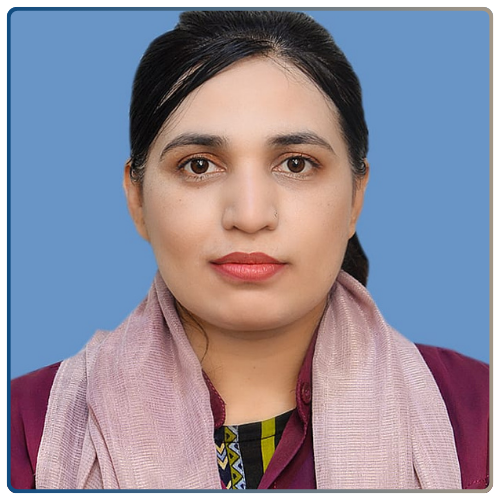
About Hina Imtiaz
Hina Imtiaz holds a Bachelor’s degree in Environmental Science from Fatima Jinnah Women University, Rawalpindi, and an MPhil in Environmental Science from Quaid-i-Azam University, Islamabad. She is currently pursuing a PhD in Agronomy (Applied Science) with the CircAB research group at CABR at the Technological University of the Shannon, Limerick, Ireland.
From October 2019 to November 2021, Hina worked as a Research Scientist at the National Agricultural Research Centre (NARC) in Islamabad. She contributed to the Agricultural Linkage Program (ALP Project NR-016) on “Health Risk Assessment of Food Chain Derived Heavy Metals.” Her role involved the comprehensive analysis of heavy metals in irrigation and drinking water, soil, plants, fodder, vegetables, wheat, and animal and human blood to assess contamination across the entire food chain. Besides conducting experiments, she managed analytical data, performed literature reviews, and prepared detailed laboratory reports.
Earlier, she completed an internship with WWF Pakistan’s International Eco Internship Programme (August–September 2016) in Islamabad. During this internship, she participated in projects focused on sustainable solutions for the food crisis, youth engagement in climate action, wildlife conservation fundraising, and providing clean water access to underserved communities.
Her research expertise lies in soil science with a strong focus on biochar, soil analysis, pyrolysis, and biomass conversion. Hina specializes in the development and application of innovative biochars, including advanced nanobiochars, aimed at enhancing soil health, improving nutrient efficiency, and promoting sustainable agricultural practices.

About Vinay Kumar
Vinay holds a BSc in Non-Medical from Kurukshetra University (2014–2017) and an MSc in Physics from the National Institute of Technology, Hamirpur (2017–2019), where he developed a strong foundation in applied physics and experimental methodologies. He later earned an MSc in Biomedical Science from the University of Galway (formerly National University of Ireland, Galway), fostering a multidisciplinary approach to translational research in the life sciences.
With 2.5 years of industrial experience at Abbott Diagnostics, Vinay contributed to quality systems and biomedical product workflows, reinforcing his interest in translational biomedical technologies.
Currently, Vinay is a PhD researcher with the Bioengineering Organ-on-Chip Research Group under the lead supervision of Dr Niamh Fahy (TUS Midwest), and co-supervision of Dr Emma J. Murphy, Dr Liam O’Neill and Dr Declan Devine. Vinay’s PhD research is a collaborative project with TheraDep Ltd. and funded through the TUS RISE Scholarship. His research explores the therapeutic applications of Cold Atmospheric Plasma (CAP) in osteoarthritis, with an emphasis on biophysical modulation of cell behaviour, inflammation resolution, and extracellular matrix regeneration. His project integrates CAP technology and in vitro osteoarthritic models to systematically evaluate plasma-induced molecular and cellular responses under physiologically relevant conditions.
His broader research interests include plasma medicine, mechanobiology, tissue engineering, and the development of next-generation regenerative therapies for musculoskeletal disorders.

About Margarida Matias
Margarida Matias is pursuing a Ph.D. in Biotechnology at the Technological University of Shannon – Midwest as part of the RUN-EU initiative. She is currently working on her research under Dr. Patrick Murray of TUS in further collaboration with Dr. Alice Martins and Dr. Susete Pinteus who are based at MARE-IPL. Her project pertains to a biorefinery of macroalgae, bringing together both academic research and her concerns for ecological matters and industrial advancement. Margarida’s specialization includes tissue engineering, natural marine products, and functional biomaterials.
She has a Master’s in Marine Biotechnology from the Polytechnic University of Leiria in Portugal. During her education, she collaborated with researchers of MARE-CETEMARES and took part in the works of biotechnological products derived from Portuguese marine sources. At CABR, she also participates in industrial projects applying her specialized knowledge.
Her work is relevant to the United Nations Sustainable Development Goals (SDGs), notably 3-Good Health and Well-being, 8-Decent Work and Economic Growth, 12-Responsible Consumption and Production, and 14-Life Below Water. Using her vast knowledge, she now aims to develop creative ways of combating challenges towards a sustainable future.

About Morgan McNamara

Morgan McNamara is a postgraduate student in the Centre for Applied Bioscience Research, TUS. Morgan’s project is ‘Microbead encapsulation of proteins and select nutrients of relevance to sport nutrition’ and is based on studying microbead encapsulation of proteins and nutrients of relevance to sports and exercise. His project supervisors are Dr. Peter Downey and Dr. Siobhan Moane. Morgan completed his undergraduate degrees in Limerick IT and received an honours degree in Bioanalysis & Biotechnology in 2019. His final year project was ‘Characterisation and Monitoring of Growth Conditions and Product Production of CHO Cells’.
Morgan’s research interests and experience align with UN SDGs 3 and 15 (Good Health and Well-Being; and Life on Land).

About Megan O'Brien
Megan O’Brien is conducting her doctoral studies under the supervision of Dr Joanna Tierney, Dr James Gaffey, Dr Joanna Przyborska, and Dr Helena McMahon. Her research focuses on testing and optimising sustainable feedstocks and products in green biorefinery systems, aiming to advance resource efficiency and develop innovative pathways for the bioeconomy. Megan’s research is funded by BiOrbic through Research Ireland.
Megan earned a first-class honours B.Sc. (Hons) in Agricultural Science from Munster Technological University (MTU) Kerry, reflecting her dedication to sustainable agricultural research. Her undergraduate thesis, conducted in collaboration with Kerry Dairy Ireland, investigated nitrogen use efficiency and the estimated mineralisation of grasslands on heavy soil profiles in southwest Ireland. The findings contribute to more sustainable land-use praactices and enhanced agricultural productivity.
Megan’s research interests and professional activities align with the UN Sustainable Development Goals 2, 12, 13, and 15 (Zero Hunger; Responsible Consumption and Production; Climate Action; and Life on Land).
Academic and Associated Principal Investigators


Dr. Beletskaya received her Bachelor’s Degree in Biology and Chemistry (specialising in Microbiology) from the Belarus State University and completed her PhD in Virology and Molecular Biology at Belarus Research Institute for Epidemiology and Microbiology (RIEM). Tanya has previously held Research Scientist roles with Serosep, Ireland (Biotechnology Diagnostics) and with the Centre for Applied Bioscience Research as part of an EU FP7 research project (BAMMBO) which was co-ordinated by LIT. Tanya worked as Postdoctoral Researcher with the Centre for Applied Bioscience Research. She is involved in a variety of industrial related research projects dedicated to the development of new processes and novel products to the Biotechnology, Food and Life Science industries whereby she is involved in the development, management and timely delivery of projects. She is principal investigator of Innovation Partnership project with Gadera (horticulture company) and co-principal investigator of Innovation Partnership project with Cara Partners (pharmaceutical company). She was involved in a wide range of Enterprise Ireland Innovation Voucher projects and was principal investigator of one of them co-principal investigator of three of them. Her particular specialization is in Super Critical CO2 extraction (SC-CO2) of bioactive compounds from natural sources. Tanya has developed SC-CO2 methods for the extraction of carotenoids from algal cells for Algal Health (Ireland) and Algal Fuel (Portugal). Tanya has also a wide range of skills in molecular biology, microbiology, virology, immunology, analytical chemistry and biochemistry. Tanya current holds the position of Lecturer in the Applied Science Department, TUS.
Tanya’s research interests and experience aligns with UN SDGs 3 and 15 (Good Health and Well-Being; and Life on Land).


Dr Boateng had his basic training in Pharmacy and Registered as a Pharmacist in 2011. He worked mainly in the pharmaceutical industry in various roles in quality control and regulatory affairs. He obtained an MSc. Pharmaceutical Analysis from the University of Strathclyde in 2016 during which he researched into the use of retention modelling for computer-based analytical method development. In 2022, he was awarded a PhD by the University of Galway (NUI Galway) based on the thesis: Bioprocess Monitoring using Polarised Multidimensional Fluorescence Spectroscopy. His current research is based on the application of biophotonics-based process analytical technologies (PAT) for continuous manufacturing of therapeutic proteins and functional food ingredients. He also studies the use of green chemistry alternatives for extraction and analysis of bioactive compounds using supercritical fluid chromatography. Bernard joined MTU in 2021 and lectures in the Department of Biological and Pharmaceutical Sciences and the International Medical Commencement Programme (IMCP). Bernard is a member of the Royal Society of Chemistry, UK and the International Federation of Pharmacists (FIP).
Bernard’s research interests and experience aligns with UN SDGs 3 and 15 (Good Health and Well-Being; and Life on Land).
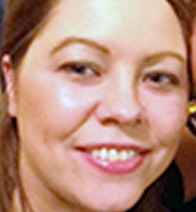

Dr. Bridget Breen received her Bachelor Degree (BSc) in Neuroscience from the Department of Anatomy, University College Cork (UCC). Bridget is currently a Principal Investigator at the Centre for Applied Bioscience Research research centre and Lecturer in the Department of Biological and Pharmaceutical Sciences in MTU. Bridget completed her PhD in Neuroscience at the Department of Physiology and Medical Physics, Royal College of Surgeons in Ireland (RCSI). Bridget’s PhD research was focused in the fields of Apoptosis, Acidosis, Inflammation, in vitro and in vivo models of motor neuron degeneration in Amyotrophic Lateral Sclerosis/Motor Neuron Disease (ALS/MND) and Behavioural Neuroscience. Bridget continued her research in Neuroscience as a post-doctoral researcher at the Department of Anatomy and Network of Excellence for Functional Biomaterials (NFB), National University of Ireland, Galway (NUI Galway). Bridget’s post-doctoral project was completed in collaboration with an industry partner, Covidien, New Haven, CT, USA, and was co-funded by the Industrial Development Authority (IDA), this research project was focused on neuronal regeneration following Spinal Cord Injury (SCI). During her post-doctorate fellowship she was involved in applying for an FP7-Health-2012-Innovation-2 project entitled NeuroGraft, which was subsequently funded and coordinated by NFB, NUI Galway. Bridget later took up the position of NeuroGraft Project Manager and Industry Liaison Officer at NFB, NUI Galway.
Bridget’s research interests and experience align with UN SDG 3 (Good Health and Well-Being).

About Dr. Michael Callanan
Dr. Callanan qualified with a PhD in Microbiology from UCC in 1996 and spent five years completing postdoctoral studies in various aspects of food microbiology at Massey University, New Zealand and North Carolina State University in the US, followed by 5 years leading a microbial genomics research team at Teagasc, Moorepark Food Research Centre.
In 2007 he moved out of applied academic research to work for Glanbia Nutritionals in Kilkenny before being recruited to the Nestlé Research Centre (NRC) in Lausanne in 2010. At the NRC, he was responsible for managing several large (> 1million CHF) R&D projects primarily focused on food quality and safety but covering all R&D elements from basic research through to new product launches.
He returned to Ireland to join MTU academic staff in January 2016. Since 2016 he has brought significant research funding into MTU in the form of external grant funding from Department of Agriculture, Science Foundation Ireland and Teagasc Walsh Fellowships.

Dr. Orlaith Brennan is a Lecturer in Medical Physics in the Royal College of Surgeons in Ireland. She graduated from Trinity College Dublin with a degree in Experimental Physics before continuing to do an MSc in Biomedical Engineering after which she worked in marketing for a number of years. She returned to academia to carry out a PhD in RCSI. On completion she took up a number of postdoctoral positions in the UK and Australia before returning to Ireland. On her return, Orlaith carried out research with industrial collaborators for a number of years before subsequently working as a Clinical Project Manager with Crescent Diagnostics. Orlaith is based in MTU as part of the RCSI International Medical Commencement Program and collaborates with the Centre for Applied Bioscience Research on industry projects and postgraduate student supervision.
Orlaith’s research interests and experience align with UN SDG 3 (Good Health and Well-Being).


Dr. Peter Downey, a Limerick City resident, began his undergraduate degree in Forensic and Pharmaceutical Analysis in 2003 at Limerick Institute of Technology. During this four-year period, Peter studied and trained in a wide range of chemical and instrumentation theories and practices. Within this time he also spent six months working with GxP Systems, a contractor for Boston Scientific, Galway, as a computer systems validation engineers and technical writer. This oppertunity gave him invaluable experience with good documentation practices and validation techniques.
After graduating in 2007, Peter returned to GxP Systems as a validation engineer for four months before being selected for a six month government sponsored internship with Dynamac Corporation; at that time a contractor for NASA based at the Space Life Science Laboratory (SLSL) in NASA’s Kennedy Space Center, Florida. During these six months Peter worked on two projects concerned with Advanced Life Support (ALS) systems. The first investigated the action of Fava bean stomata when exposed to super-elevated levels of carbon dioxide and the role of hormonal action during this exposure. The second involved the investigation of a new IR technique (Encoded Photometric Infrared) for volatile organic compound (VOC) determination in air – for specific use onboard the International Space Station.
On his return from the internship, Peter was awarded an IRCSET grant under the Enterprise Partnership Scheme; in partnership with Dynamac Corporation, which allowed him to begin is postgraduate studies in LIT in 2008. Six months after beginning his PhD at LIT, Peter was awarded another opportunity to travel to the SLSL in Florida for a year in order to intensify and improve his controlled environment systems (CES) training and research skills. While there Peter worked under the guidance of Dr. Lanfang Levine and was responsible for projects, as part of his PhD, which investigated the effects of gravity on bioactive compounds in soybean and brassicas.
Having up-skilled in areas prevalent to his research, Peter returned to LIT and became one of a group of postgraduates that formed a new, dedicated research group with LIT’s Department of Applied Sciences, the CELLS Research Group. Peter is now finishing his PhD within the CELLS research group at the Centre for Applied Bioscience Research within LIT.
Peter’s research interests and experience align with UN SDGs 3, 12 and 15 (Good Health and Well-Being; Responsible Consumption and Production; and Life on Land).


Dr. Oscar Goñi is Scientific Supervisor with Brandon Biosciences, a seaweed biotechnology company. Dr Goñi collaborates closely with the Centre for Applied Bioscience Research and supervises postgraduate students with the Centre for Applied Bioscience Research staff. He received his Degree in Chemistry from the University of Navarra (Spain), an MSc in Biochemistry and Molecular Biology from Complutense University of Madrid (Spain) and completed his PhD in Plant Protein Biochemistry at ICTAN-CSIC (Spain) and Complutense University of Madrid (Spain). Dr Goñi has previously worked as a Postdoctoral Research Fellow in the Max Planck Institute of Plant Breeding Research (Cologne) and as Postdoctoral Researcher in the Centre for Applied Bioscience Research / IT Tralee. He is a protein biochemist with experience in development of chromatographic techniques, purification and characterization of functional proteins, enzymology, or evaluation of protein and gene biomarkers. Dr. Goñi’s current role specialises in the production of plant biostimulants for crop quality, nutrient use efficiency and stress protection. He is also named inventor on a number of patents and has also published and presented widely in the field of phytochemistry, plant physiology and agriculture.
Oscar’s research interests and experience align with UN SDGs 2, 13 and 15 (Zero Hunger; Climate Action; and Life on Land).


Dr Michael Hall received his honours degree in Biochemistry from the National University of Ireland, Galway (NUIG), an M.Sc. in Advanced Scientific Techniques from Cork Institute of Technology and completed his Ph.D on natural peptides in reproductive endocrinology from NUI Galway. In 2007, Michael originally proposed the development of a natural products themed strategic research area in the Institute of Technology Tralee and was later a co-founder of the the Centre for Applied Bioscience Research with colleagues from the Institutes of Technology in Tralee (now MTU) and Limerick (now TUS).
Michael has been a Lecturer in Analytical Biochemistry, Head of the Departments of Chemical and Life Sciences, Health and Leisure Studies and International Medical Commencement Programs. He was also seconded for four years to the position of Registrar of the Institute. He is Head of School of Health and Social Sciences in MTU and continues as a Principal Investigator with the Centre for Applied Bioscience Research and with the University’s UNESCO Chair. Dr. Hall has expertise in the areas of oestrogens, oxysterols and lipids in health; applications of bioactives in nutrition and pharma and in exercise in health and disease.
Michael’s research interests and experience align with UN SDG 3 (Good Health and Well-Being).


Dr. Tracey Larkin is a B.Sc., Ph.D. Biochemistry graduate from the National University of Galway. Tracey leads the food support services at the Centre for Applied Bioscience Research, specifically with regards to final product testing, shelf life testing and nutritional analysis. This service supports new product development, product improvement, bench-marking and quality-testing for SME’s. Following her undergraduate study, Tracey completed a post doctorate with the Life Science Dept. of the University of Limerick in the area of food biochemistry and modified atmosphere packaging. Tracey then worked with Olympus Diagnostica in clinical research and development as a project/program manager for a number of years. Currently Tracey is lecturing a range of subjects including Analytical Techniques and Quality Management. Tracey’s current research focuses on analysis of antioxidants/bio-actives in foods and has an IRC funded project to investigate organic fruits and vegetables.
Tracey’s research interests and experience align with UN SDG 3 (Good Health and Well-Being).
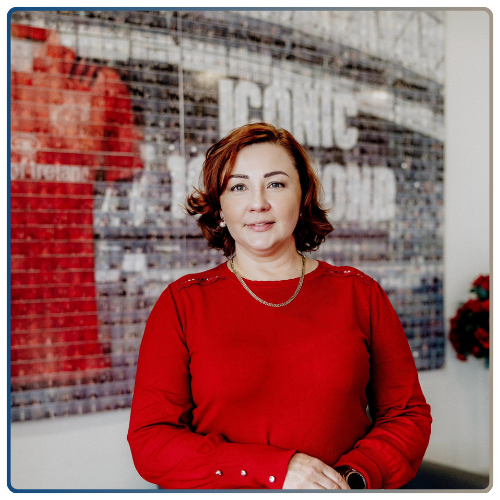
About Dr Lena Madden

Senior researcher and the lead of Circular Agriculture and Biotechnology Research Group (CircAB) at the Centre for Applied Bioscience Research (CABR), Technological University of the Shannon, Dr Madden’s expertise in is the research project development, funding acquisition and delivery. Specialising in the research projects that bridge the gap between idea development and technology transfer and with a scientific specialisation in analytical chemistry and industrial biotechnology, her expertise encompasses not only technical management of the projects but ensuring continuous excellence, operations safety, and outputs quality.
With a strategic focus on research design and development management, she has developed the successfully executed multiple collaborative academic and industrial initiatives both national and European. Leading a team of experts dedicated to advancing sustainability and circularity on biotechnology, agroecology and environmental engineering, she underscores her group’s commitment to innovation and impactful research.


Dr. Brendan McCarra received his Degree in Biochemistry from the National University of Ireland, Galway (NUIG) and completed his MSc in Biotechnology, also at NUIG. He obtained his PhD for the investigation of the effect of biochemical inductors on autolysis of spent yeast Kluyveromyces marxianus and the production of flavoured compounds. Brendan previously worked with the Quest International Group (Unilever) as Project Manager with responsibility for optimization, automation and control of microbial fermentations for the production of natural flavours and industrial enzymes. He is currently a Lecturer at MTU where he lectures in Biotechnology and Bioprocessing, GMP and Food Science and Technology. He is also involved in supervision and delivery of Government funded training programs including the Springboard funded Biopharma processing program in cooperation with the National Institute for Bioprocessing Research & Training (NIBRT) facility and the Biopharma Training Facility, Cork. Other industrial programs include the Certificate in Validation and Certificate in Brewing and Distilling Operations in cooperation with CIT. Brendan’s appointment as Strategic Research Area (SRA) Leader at IT Tralee in the area of Natural Products & Environmental Management enabled him to play a vital role in the establishment of the Centre for Applied Bioscience Research and he is currently a Principal Investigator with expertise in the areas of yeast fermentation, enzyme applications & bioreactor technology. He has successfully received funding for the completion of Enterprise Ireland Innovation Partnerships and a number of MSc and PhD projects and is currently cooperating with industry on Enterprise Ireland funded projects which include optimisation of brewing yeast fermentation processes and bioprocessing of natural bioingredients using enzyme technology. Brendan remains an advisor to industry in relation to fermentation, bioprocessing of natural feedstocks and biotechnology processes.
Brendan’s research interests and experience align with UN SDGs 3 and 12 (Good Health and Well-Being; and Responsible Consumption and Production).


Dr. Helena McMahon received her Degree in Biomedical Science from University College Dublin and completed an MSc in Molecular Medicine at the Trinity College Dublin. Following this Helena also completed her PhD in Gene and Cellular Therapeutics from Trinity College Dublin. Helena currently holds the position of Postdoctoral Researcher with the Centre for Applied Bioscience Research and specialises in the pre-commercial evaluation of algal derived pre-biotic poly and oligosaccharides using phenotypic microarray analysis screening. She is also experienced in the development of gene therapeutics utilising RNAi technology and human stem cell culture, development of gene delivery technology and transcriptomics.
Helena’s research interests and experience align with UN SDGs 11, 12 and 13 (Sustainable Cities and Communities; Responsible Consumption and Production; and Climate Action).


Dr. Claire Meaney is a Principle Investigator at the Centre for Applied Bioscience Research, TUS. Claire holds a degree in Biomedical Engineering and Ph.D. in Tissue Engineering and Regenerative Medicine from the University of Limerick, Ireland. As part of Claire’s post-doctoral work, she was been funded by the Irish Health Research Board to complete a Masters of Public Health at University College Dublin (Ireland) as part of the US National Cancer Institute’s Cancer Prevention Postdoctoral Fellowship Program and spent 4 years at the United States National Institutes of Health in Bethesda, Maryland, conducting research at the Laboratory of Human Carcinogenesis and Division of Cancer Prevention. Claire returned to the Irish health research setting to support the Centre for Applied Bioscience Research in planning, managing, and delivering research projects for companies in the biotechnology, pharmaceutical, food and cosmetic sectors. Claire has an on-going funding award from The Health Research Board to conduct research in biomarkers of lung cancer.
Claire’s research interests and experience align with UN SDG 3 (Good Health and Well-Being).


Dr. Siobhan Moane received her Degree in Analytical Science from the Dublin City University (DCU) and completed her PhD in Analytical Chemistry, also from DCU. Siobhan has since completed a Certificate in Supervisory Management from the Irish Management Institute and a Diploma in Popular Forensic Psychology from Limerick Business School. Siobhan currently holds the position of Head of Research and Technology Transfer at Limerick Institute of Technology (LIT), having previously been held a postdoctoral fellowship in the Toxicology Department in the State Laboratory, as well as the position of Biochemist at the Medical Bureau of Road Safety. Siobhan is responsible for the implementation of the strategic research areas of LIT and support and development of the link between teaching and research, as well as the identification of technology transfer opportunities. Siobhan is also a PI for research in the design, production and application of molecularly imprinted polymers to the analysis of drugs of abuse in biological specimens for forensic analysis and also in the development of novel analytical methods (HPLC, GC/MS) for the detection of drugs of abuse in addition to the detection of date-rape drug GHB in alcoholic beverages. Siobhan’s provision of academic leadership for research activities in LIT was vital in her involvement in the establishment of the Centre for Applied Bioscience Research.
Siobhan’s research interests and experience align with UN SDGs 3 and 15 (Good Health and Well-Being; and Life on Land).


Dr. Patrick Murray is a molecular biotechnology researcher and has a strong track record of collaboration with industry. His research areas involve identification of innovative ingredients and biological products from natural resources particularly marine and fungal microorganism libraries using novel state of the art processes to obtain lead molecules for drug development and value added food, flavour and medicinal products. His research includes fungal and marine biotechnology, protein and glycoconjugate biochemistry, gene cloning, and molecular enzymology. He is also strongly involved in the production, purification, characterization and genetic aspects of fungal polymer-degrading enzymes (i.e. carbohydrases, proteinases/peptidases) and oxidoreductases etc. His research also involves development novel green biotechnological pathways for nanoparticle and bio-nanoparticle conjugate molecule production for health applications. He also directs projects involved in bioconversion of target biomass and plastic pollutant streams to feedstocks for biodegradable packaging/bioethanol/biodiesel production. His work explores sustainable circular bioeconomy pathways from these natural resources employing a cradle to grave life cycle assessment approach. His research employs the Centre for Applied Bioscience Research state of the art analytical and biotechnological instrumentation to develop in line bio-analytical and biotechnology techniques in particular with the use of analytical instrumentation such as SCFE, HPLC, LCMS, GC, AAS, CE, UV-Vis spectroscopy etc. as applied to the analysis of biological samples. To further that end we have also developed state of the art capabilities in analytical based molecule identification, extraction, purification and enrichment. Patrick has over fifty research publications and supervises research students at masters and PhD levels.
Patrick’s research interests and experience align with UN SDGs 3, 12 and 14 (Good Health and Well-Being; Responsible Consumption and Production; and Life Below Water).

Dr. Shane O’Connell is the R&D Manager with Marigot Ltd, a seaweed biotechnology company. Shane collaborates closely with the Centre for Applied Bioscience Research and supervises postgraduate students with the Centre for Applied Bioscience Research staff. Shane previously held the position of Strand Leader with the Centre for Applied Bioscience Research where he was responsible for the day to day running of the facilities in Tralee, providing scientific leadership and developing industrially relevant projects as well as technology transfer. Shane received his Degree in Industrial Biochemistry from the University of Limerick (UL) and subsequently completed his PhD in Enzymology and Protein Biochemistry, also at UL. Shane completed a Diploma in Biomedical Science from the University of Ulster, Coleraine and specialises in enzyme biotechnology, recombinant protein production, screening organic waste for value added bioactives, and developing phenotype microarray technology for bioprocessing.
Shane’s research interests and experience align with UN SDGs 2, 13 and 15 (Zero Hunger; Climate Action; and Life on Land).


Mr. Patrick Quille received his Degree in Chemistry of Pharmaceutical Compounds from University College Cork in 2007. He has since completed an MSc in Biotechnology in the the Centre for Applied Bioscience Research laboratories at IT Tralee on a project entitled: The preparation of an alginate with a hydrophobic moiety that retains its biocompatibility and immunosuppressive properties while remaining suitable for cellular encapsulation. He has previously worked in Astellas as a Process Technician and in the Centre for Applied Bioscience Research as a Biochemical Technician. He currently holds the role of Research Assistant with the Centre for Applied Bioscience Research and is developing a commercial focus to the use of bioassays in the assessment of different components of seaweed and the impact of seasonality.
Patrick’s research interests and experience align with UN SDGs 2, 13 and 15 (Zero Hunger; Climate Action; and Life on Land).


Dr. Gaurav Rajauria is a Lecturer at the Munster Technological University – Kerry Campus, where he lecturers in Bioeconomy and Biopharmaceuticals. He has multidisciplinary teaching, supervision and research experience in the area of bioeconomy & biotechnology, pre-treatment and valorisation, microbiology, bioprocessing, bioactive, nutritional chemistry and analytical science.
Gaurav has been a Principal Investigator (PI) and Collaborator of a Science Foundation Ireland (SFI) grant, European Regional Fund, Enterprise Ireland (EI) Innovation Grant and EI Feasibility Grant. He has extensively published in his area of research, have edited books and journals and delivered keynote and invited talks. He holds 2 patents one of which was selected as Irish Research Council (IRC)’s best commercializable research idea in Ireland and also chosen by Massachusetts Institute of Technology (MIT) as Top 50 Global Ideas for Entrepreneurship Programme. He is an elected member of the Royal Society of Chemistry (MRSC) UK, member of the Phytochemical Society of Europe and Management Committee member of a European COST Action programme.
Gaurav completed his PhD in Food and Analytical Science from Technological University Dublin (Formerly DIT) for Screening, Purification and Characterization of Bioactive Compounds from Irish Seaweed for Nutraceutical and Pharmaceutical Applications. Following his PhD, he joined University College Dublin as Research Technologist working on a range of industry and academic led research projects focusing on food quality, food security and environmental sustainability. He holds a Degree in Biosciences and MSc in Biotechnology from Agra University, India and has worked as a Research Fellow in the Industrial Research and Development Unit at Indian Institute of Technology Delhi (IIT Delhi), India where he explored cell culture and bioprocessing (upstream and down-stream processing) for the production of biopharmaceutical compounds using lab to pilot scale bioreactors.
Gaurav’s research interests and expertise are aligned with UN SDGs 3, 12 and 14 (Good Health and Well-Being; Responsible Consumption and Production; and Life Below Water).

 Dr. Joanna Tierney received her Ph.D. in Veterinary Microbiology and Parasitology, from University College Dublin and has worked on national and international biotech projects in both industry and research organisations encompassing the fields of cell biology, immunology, infection and disease with applications in biopharmaceutical, medicine and veterinary sciences. Previously, Joanna worked for Olympus Life Research GmbH in clinical assay research and development; as a Postdoctoral Fellow with the University of Wellington, New Zealand in autoimmunity; Bioresearch Ireland on vaccine development; Scottish Agricultural College Veterinary Services, in parasitic helminths; and Capital Diagnostics, Scotland in disease diagnostics.
Dr. Joanna Tierney received her Ph.D. in Veterinary Microbiology and Parasitology, from University College Dublin and has worked on national and international biotech projects in both industry and research organisations encompassing the fields of cell biology, immunology, infection and disease with applications in biopharmaceutical, medicine and veterinary sciences. Previously, Joanna worked for Olympus Life Research GmbH in clinical assay research and development; as a Postdoctoral Fellow with the University of Wellington, New Zealand in autoimmunity; Bioresearch Ireland on vaccine development; Scottish Agricultural College Veterinary Services, in parasitic helminths; and Capital Diagnostics, Scotland in disease diagnostics.
Joanna has coordinated a trans-national biopharmaceutical bioprocessing project in the EU FP7 Capacities scheme; directed a Science Foundation Ireland TIDA project looking at novel bioactives for parasite control which has evolved through Enterprise Ireland Commercialisation Fund supports to progress to the marketplace. Joanna is actively involved as Principal Investigator on several small to large scale industry funded biotech projects and her current biotech programme revolves around infection and inflammation and the sourcing of new agents that can modulate both biological processes. She has developed specific expertise in animal pathogen research in the context of bacterial and parasite infections and skin research in close collaboration with industry. She has active projects ongoing in skin healthcare including three-dimensional skin tissue modelling on novel extracellular matrices for cosmetic testing, biomimetic cell barrier models and in-vitro models for veterinary transdermal delivery.
Joanna’s research interests and expertise align with UN SDGs 3, 14 and 15 (Good Health and Well-Being; Life Below Water; Life on Land).


Dr Josephine Treacy, is a lecturer with the Department of Applied Science, and a member of the Centre for Applied Bioscience Research and Development Studies Association of Ireland, DSAI-TUS branch. Previous employment, post doctorate researcher investigating water and soil remediation using supercritical fluid technology at University College Cork, Quality Control Technician Tipperary Co-Op., Quality Control and Research Technician with Biocel LTD., Co. Cork, Executive Technician with the Environmental Section of Cork County Council working in environmental management and analytical chemical and microbiological testing of water ecosystems. Research interests include analytical monitoring and management of environmental ecosystems, education, and academic writing. Recently published reviews under the topics; environmental hydrology and climate change, water stewardship, water challenges in developing countries and flood water sampling and analysis.
Josephine’s research interests and experience align with SDGs 6, 11, 13, 14 and 15 (Clean Water and Sanitation; Sustainable Cities and Communities; Climate Action; Life below Water and Life on Land.


Danny’s research interests and experience align with SDGs 3 and 14 (Good Health and Well-Being; and Life Below Water).
Can the Centre for Applied Bioscience Research help you?



